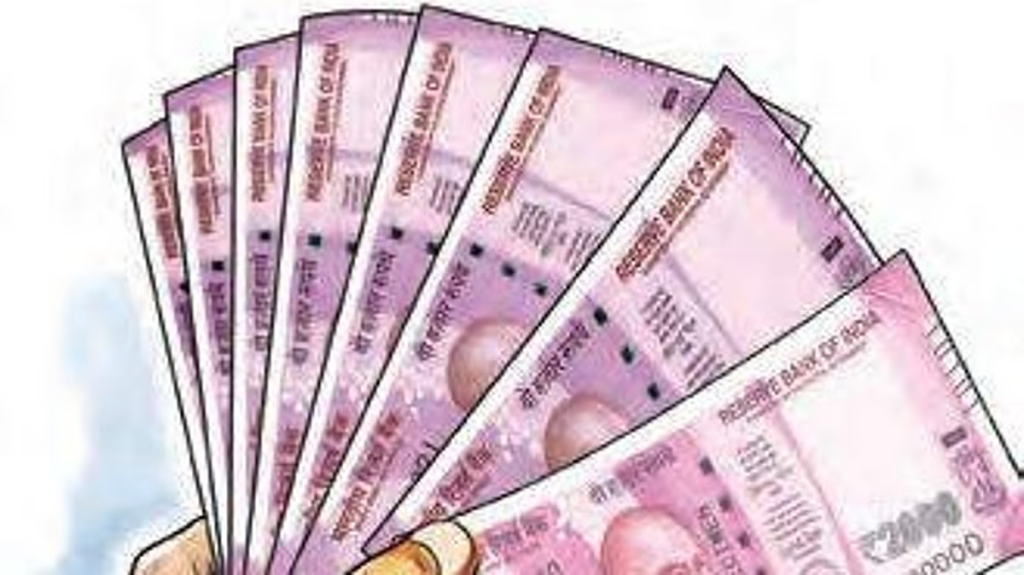In a surprising turn of events, the tourism sector of Odisha, one of India’s most vibrant states, is facing serious financial scrutiny. According to a recent audit by the Accountant General of Odisha, the state’s tourism sector is dealing with a massive ₹3.24 crore (approximately $400,000) in unsettled lease payments from private agencies. These agencies manage several key tourism properties in the state under public-private partnership (PPP) agreements. The audit has revealed that these payments, which are due on a yearly basis, have remained unpaid for several years. This scandal raises important questions about financial oversight and accountability in Odisha’s tourism industry.

Let’s break down the details of the situation, what the audit findings mean for the state, and what steps the Odisha Tourism Department needs to take to fix this financial mess. This article will help you understand not just the specific issue but also the broader implications of such financial irregularities in the tourism sector.
Odisha Tourism Faces Major Audit Scandal
| Key Point | Details |
|---|---|
| Total Unpaid Lease Payments | ₹3.24 Crore (approx. $400,000) in unsettled payments from private agencies managing Odisha’s tourism properties. |
| Affected Properties | Includes Pantha Nivas at Bhadrak, Panthasalas at Sarankula and Kantilo, Tourist Reception Centre at Baripada, and Wayside Amenity at Sunabeda. |
| Lease Terms | Annual Lease Rentals (ALR) should be 10% of the upfront payment made by agencies, with biennial escalations. |
| Penalty for Late Payments | 18% annual interest penalty on late payments. |
| Audit Findings | Audit conducted by the Accountant General of Odisha revealed a failure in recovery actions by the Odisha Tourism Department. |
| Future Actions | The Odisha Tourism Development Corporation (OTDC) must address the financial discrepancies and enforce lease agreements. |
Read the official Odisha Tourism website for more details.
The Odisha Tourism lease scandal involving ₹3.24 crore in unpaid dues has exposed some critical gaps in financial oversight and accountability. The issue highlights the need for improved monitoring systems, stronger enforcement of lease agreements, and greater transparency in managing tourism properties. The state government must take immediate action to recover the dues, enforce penalties, and ensure that such financial discrepancies do not occur in the future. Only by addressing these issues can Odisha’s tourism sector continue to grow and thrive, benefiting both the state and its people.
What Is the Rs 3.24 Crore Scandal About?
The crux of the issue lies in the fact that several private agencies responsible for running tourism properties in Odisha have failed to pay their annual lease rentals (ALR). These properties were leased out to the agencies under a public-private partnership (PPP) model, which is intended to foster better management and increased revenue generation for the state.
The annual lease rental payment, which is calculated as 10% of the upfront payment made by these agencies, is due every year. Additionally, these payments should see a biennial increase, based on the wholesale price index, to keep up with inflation and changing market conditions. However, despite the clear terms in the lease agreements, these payments have not been made. Even after being issued demand notices, the agencies have failed to clear the outstanding dues, leaving the Odisha Tourism Department in a difficult position.
In short, these unpaid dues amount to a significant loss for the state, and the tourism department’s failure to take swift action on these defaults has raised questions about its accountability and the financial management of tourism projects.

A Quick Guide to Understanding the Issue
What Are Public-Private Partnerships (PPP) in Tourism?
Public-Private Partnerships are agreements between government bodies and private companies to jointly operate and maintain various services or assets. In the case of Odisha, these partnerships were designed to help manage the state’s tourism properties. The idea is that private entities bring in capital, expertise, and operational efficiency, while the government provides access to public resources and infrastructure. In return, the private company pays the state a lease rental for using the properties.
How Do Lease Agreements Work?
Lease agreements for tourism properties in Odisha specify that the private agencies must pay an annual lease rental (ALR) based on 10% of the initial lease payment made. This is a standard practice in PPP models across India. The rental payments are supposed to be adjusted with biennial escalations, based on the wholesale price index to account for inflation. If a private agency fails to make the payment within 15 days of the due date, they incur an 18% penalty on the amount due. If they still don’t pay, the government has the right to terminate the lease agreement.
What Went Wrong in Odisha?
Despite the clear lease terms, the private agencies involved in managing the tourism properties have failed to pay their dues, leading to the ₹3.24 crore loss. While the Odisha Tourism Department has issued notices to the defaulting agencies, no significant actions have been taken to recover the funds or terminate the lease agreements as per the terms. This inaction has led to the accumulation of unpaid dues and a lack of financial discipline within the department.
The Impact on Odisha’s Tourism Sector
Odisha’s tourism sector is one of the key drivers of economic growth in the state. With rich cultural heritage, ancient temples, beautiful beaches, and diverse wildlife, the state attracts millions of tourists every year. The tourism industry contributes significantly to job creation, revenue generation, and regional development.
The failure to collect dues can result in multiple negative consequences:
- Loss of Revenue: The ₹3.24 crore could have been reinvested into tourism infrastructure, promotional activities, and community development projects.
- Weakening Investor Confidence: If the private sector perceives that the state government is unable to enforce agreements, it may lead to a loss of trust in Odisha as a viable location for investment.
- Financial Instability: Continued non-payment may lead to budgetary constraints for the Odisha Tourism Development Corporation (OTDC), which may struggle to fund new projects and maintain existing ones.
Why Has No Action Been Taken?
The Odisha Tourism Department has not taken significant steps to recover the unpaid dues despite issuing demand notices to six of the seven agencies involved. This inaction raises concerns about the department’s financial management and oversight mechanisms.
Some of the possible reasons for this inaction could include:
- Lack of Clear Procedures for Lease Termination: While the lease agreements provide for penalties and termination clauses, there may be bureaucratic delays in executing these actions.
- Political Pressure: The tourism sector may be under political influence, making it difficult for the department to take strong action against the private companies.
- Weak Monitoring Systems: The department might lack proper monitoring mechanisms to track the payments and enforce lease agreements effectively.
What Needs to Be Done?
The Odisha government and the Odisha Tourism Development Corporation (OTDC) must take swift and decisive action to recover the ₹3.24 crore dues and ensure that such issues do not arise again. Here are some practical steps that could help in resolving the issue:
- Implement Stronger Monitoring Systems: Regular checks on payments and enforceable penalties for defaults could prevent such discrepancies in the future.
- Enforce Lease Termination Clauses: The tourism department should strictly follow the lease agreement terms, including terminating contracts of defaulters.
- Encourage Transparency: Open public communication about the status of tourism property management and lease agreements can ensure accountability.
- Set Up a Dedicated Recovery Task Force: A task force can be set up to specifically handle the recovery of overdue payments, focusing on defaulters.
The tourism sector’s financial health depends on the ability of the state government to manage its resources effectively and take timely action when needed.
PNB Manager in Malkangiri Accused of Misappropriating SHG Funds, Investigation Ongoing
Odisha Police Rescues Infant Sold by Parents, Arrests Suspects in Child Trafficking Case
Odisha Secures Over Rs 2,000 Crore for Massive Afforestation Push—What This Means for the Future
FAQs
1. What is a public-private partnership (PPP) in tourism?
A PPP is a collaboration between the government and private sector to develop and manage tourism properties and services. The private sector brings in capital, while the government provides infrastructure and regulatory support.
2. How does a lease agreement work for tourism properties?
Private agencies are required to pay an annual lease rental, which is calculated as a percentage of the upfront payment they made for leasing the property. These payments are subject to penalties if not made on time.
3. Why did the agencies fail to pay the lease rentals?
The reasons for non-payment could include financial difficulties, poor management by the agencies, or delays in the state’s monitoring and enforcement mechanisms.
4. How can the Odisha Tourism Department recover the dues?
The department can initiate legal actions, terminate contracts with defaulters, and set up stricter monitoring systems to prevent future delays.





